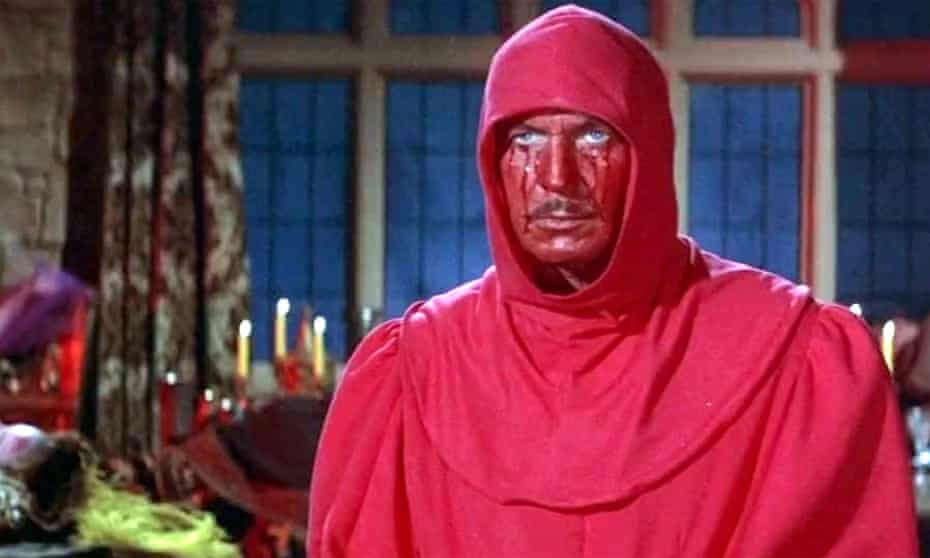We shouldn’t be surprised when sci-fi writers correctly predict the future, says Garth Groombridge, while Frances Starbuck detects the shadow of Edgar Allan Poe looming over the current crisis at No 10

Vincent Price in a scene from The Masque of the Red Death.
Photograph: Pictorial Press Ltd/Alamy
Letters
Fri 4 Feb 2022
Somebody at the Guardian seemed surprised that occasionally novelists and science fiction writers get the future right (Editorial, 30 January). Those of us who have loved, read, or even written science fiction can only chuckle quietly at their surprise. It is the nature of future-thinking authors to take an idea, even in embryo, and run with it. Sometimes, examples such as HG Wells actually predicting a city-destroying bomb and calling it an “atom-bomb” in 1913 can be a bit breathtaking.
I’m still impressed with Ray Bradbury’s 1953 short story The Murderer, which predicts the mobile phone and house-computer, and Henry Kuttner’s Year Day (circa 1953) which predicts mass advertising and virtual reality. To me, a recent article about a visit to Donbas perfectly matched Orwell’s Airstrip One in 1984, even down to the ruined buildings, torture centre and bad coffee.
Belonging to a generation who hoped, by AD 2000, we would have proper self-drive flying cars, video phones, computers that follow complex voice commands and tourist trips to the Moon (Frank Hampson, drawing Dan Dare in 1950, promised much of that, and more), I find our 21st century to be something of a disappointment. Since 2016, I think we have all finished up living a badly written 1970s dystopian novel instead.
Garth Groombridge
Southampton
On novelists predicting the future, for “partygate” read The Masque of the Red Death by Edgar Allan Poe – or see the wonderfully over-the-top film starring Vincent Price.
Frances Starbuck
Lepton, West Yorkshire
Letters
Fri 4 Feb 2022
Somebody at the Guardian seemed surprised that occasionally novelists and science fiction writers get the future right (Editorial, 30 January). Those of us who have loved, read, or even written science fiction can only chuckle quietly at their surprise. It is the nature of future-thinking authors to take an idea, even in embryo, and run with it. Sometimes, examples such as HG Wells actually predicting a city-destroying bomb and calling it an “atom-bomb” in 1913 can be a bit breathtaking.
I’m still impressed with Ray Bradbury’s 1953 short story The Murderer, which predicts the mobile phone and house-computer, and Henry Kuttner’s Year Day (circa 1953) which predicts mass advertising and virtual reality. To me, a recent article about a visit to Donbas perfectly matched Orwell’s Airstrip One in 1984, even down to the ruined buildings, torture centre and bad coffee.
Belonging to a generation who hoped, by AD 2000, we would have proper self-drive flying cars, video phones, computers that follow complex voice commands and tourist trips to the Moon (Frank Hampson, drawing Dan Dare in 1950, promised much of that, and more), I find our 21st century to be something of a disappointment. Since 2016, I think we have all finished up living a badly written 1970s dystopian novel instead.
Garth Groombridge
Southampton
On novelists predicting the future, for “partygate” read The Masque of the Red Death by Edgar Allan Poe – or see the wonderfully over-the-top film starring Vincent Price.
Frances Starbuck
Lepton, West Yorkshire
No comments:
Post a Comment